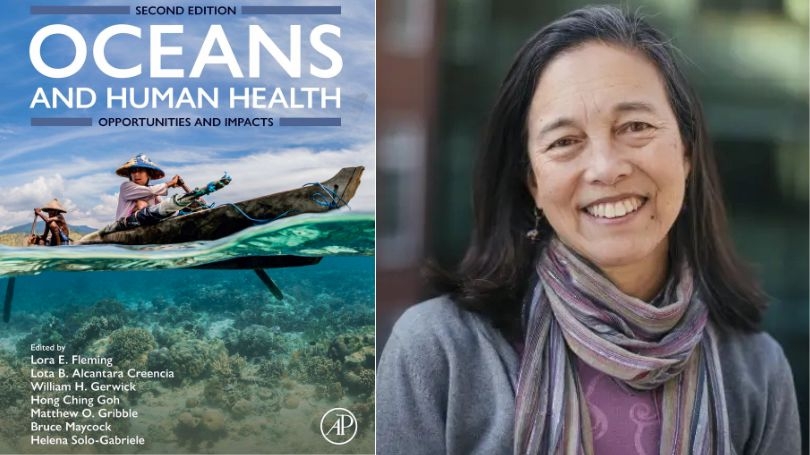
- About
- Departments & Programs
- Faculty Resources
- Governance
- Diversity
- News
Back to Top Nav
Back to Top Nav
Back to Top Nav
Back to Top Nav
Oceans and Human Health: Opportunities and Impacts, Second Edition explores the interconnected and complex relationship between oceans and humans.
Research professor Celia Chen '78, Guarini '94, of the biological sciences department co-wrote a chapter on ocean chemicals in the new textbook Oceans and Human Health: Opportunities and Impacts, Second Edition.
Chen joins more than 100 researchers and scientists around the world who collaborated on the book to document the interconnected and complex relationship between the health of oceans and humans.
The book examines the many ecosystems offered by oceans as well as the global pollution and harm created by humans, and explores the associated risks and benefits to human health. It features international and interdisciplinary perspectives on the resources available to address these benefits and risks, including enhanced research, policy, and community engagement.
For the chapter Chen co-authored (with Robert Mason of the University of Connecticut, Derek Muir of Environment and Climate Canada, and Rainer Lohmann of the University of Rhode Island), she drew on her research on persistent pollutants in aquatic ecosystems, including mercury and per-and polyfluorinated alkyl substances (PFAS).
"Ocean chemicals are transported in the atmosphere all over the globe," Chen says. "Even though they are at very low concentrations in seawater, they can bioaccumulate to high levels in marine top predators."
The book emphasizes that caring for the world's oceans requires an interdisciplinary approach.
"The fate of chemical pollutants in the oceans is determined by chemical, physical, and ecological factors and therefore requires the expertise of scientists in all of those disciplines," Chen says.
The textbook's publication comes at a time when issues of biodiversity and human health are at the forefront of the global agenda. The United Nations proclaimed 2021-2030 a "Decade of Ocean Science" to support efforts to reverse the cycle of decline in ocean health and support the sustainable development of the ocean.
Even amid increasingly difficult living conditions for many marine species and rising sea levels due to climate change, Chen remains hopeful for the future.
"The fact that there have been effective reductions of sources of these chemicals thanks to policy decisions made nationally and internationally gives me hope that we as global citizens can make things better," she says. "That said, we also need to make sure as scientists that we communicate the science to policymakers.